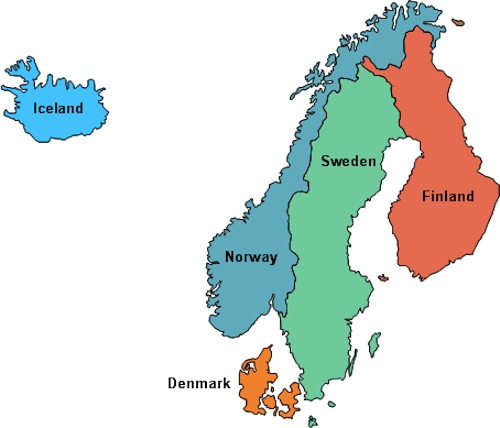Worldwide surveys consistently rank Scandinavia as one of the best places to live on Earth. Here’s one prominent example. I’ve been obsessed with the area for a few years now; I have a background in education (was a teacher for a bit, etc.) and Finland basically is doing that better than anyone in the world. Denmark may have the best restaurant in the world, and the idea of ‘foraging’ is all the rage in food these days. Even the oft-discussed ‘Scandinavian suicide rate’ is mostly a myth.
Still, like any place … bad things happen. Today in Norway, three were killed in a bus hijacking, and of course, there’s Anders Breivik (who recently told his mother he’s ‘sorry for ruining her life’). Are these isolated incidents, or is Scandinavia perhaps not it’s all cracked up to be?
From an American perspective, this is an interesting post. Scandinavia does a good deal of things well, but it’s by no means a center of innovation or research/development — which the U.S. assuredly is. Scandinavian countries also tend to be smaller and more homogenous; that makes the pursuit of commonly-held goals more achievable than in America. The Nordic model is often confused as “socialism” (by Americans) or “too capitalistic” (by Nordics). It’s really kind of in the middle; it tends to produce less socioeconomic inequality than in other developed countries, although that argument can vary by country.
The discussion goes back and forth all over the Internet, but to the original point of this post: Norway is one of the safest countries on Earth (and has extremely humane prisons), although crime in Oslo is rising. Sexual assault is in an increasing concern in all Scandinavian countries, but Finland and Sweden are almost crime-free (Denmark has had some issues, however). The latest homicide rate has the U.S. worse than all Scandinavian countries. While Oslo is becoming unsafe for women, most of Scandinavia ranks among the best places on the planet for a woman to live. (The U.S. is down at No. 23 in that same study.) The Atlantic refers to Iceland as ‘superlative happiness on a cold little rock,’ and 10 percent of the population publishes a book. In Iceland, violent crime is pretty much non-existent.
These Norway stories — Breivik and the bus attack — are likely outliers. There are certainly issues with Scandinavia, and to write about the area is challenging as the cultures are definitely different, but overall, the studies aren’t lying. If you can tolerate colder, longer winters, it’s an absolute elite area of the world in which to live; it might not necessarily be a good fit for someone who is an extremely hardcore American, but most elements of life there are fairly positive. It can sometimes seem that the global perception couldn’t possibly be correct.
I came away from most of this reading/watching with a still-healthy appreciation of Scandinavia, and a desire to chase the Nordic dream. One amazing thing I came across towards the end: in Norway, as well as other parts of Scandinavia, there is a notion of walking just to walk, which I do all the time. In the U.S., it can often feel like one needs to rush everywhere, or do everything according to some kind of pace. Negative. I realize the difference between our type of capitalism and a focus on development and results and their (general) way of life, and I think I prefer the latter. I don’t see myself ever being in a contextual situation to move to Scandinavia, but … I do appreciate their quality of life.

3 Comments
Comments are closed.